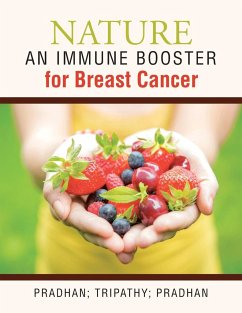
Pancosmic Perusal of Prepubescence Immunoreactive Cloak of Erythema
Versandkostenfrei!
Versandfertig in über 4 Wochen
29,99 €
inkl. MwSt.

PAYBACK Punkte
15 °P sammeln!
Atopicdermatitis is a common, chronic, relapsing, inflammatory skin disease that primarily affects young children. Atopy is defined as an inherited tendency to produce immunoglobulin E (IgE) antibodies in response to minute amounts of common environmental proteins such as pollen, house dust mites, and food allergens. Dermatitis derives from the Greek "derma," which means skin, and "itis," which means inflammation. Dermatitis and eczema are often used synonymously, although the termeczema is sometimes reserved for the acute manifestation of the disease (from Greek, ekzema, to boil over); here, ...
Atopicdermatitis is a common, chronic, relapsing, inflammatory skin disease that primarily affects young children. Atopy is defined as an inherited tendency to produce immunoglobulin E (IgE) antibodies in response to minute amounts of common environmental proteins such as pollen, house dust mites, and food allergens. Dermatitis derives from the Greek "derma," which means skin, and "itis," which means inflammation. Dermatitis and eczema are often used synonymously, although the termeczema is sometimes reserved for the acute manifestation of the disease (from Greek, ekzema, to boil over); here, no distinction is made. Over the years, many other names have been proposed for the disease, for instance, prurigo Besnier (Besnier's itch), named after the French dermatologist Ernest Besnier (1831-1909). Allergic sensitization and elevated immunoglobulin E (IgE) are present in only about half of all patients with the disease, and therefore atopic dermatitis is not a definitive term. Eczema, also known as atopic dermatitis (AD), is a chronic skin condition that affects many aspects of a person's health and wellbeing1. It is an allergic condition, like asthma and hay fever, meaning the body is showing an exaggerated immune response to an environmental exposure2. When the skin meets an allergen, a reaction occurs, and a rash can develop. Creams and ointments can be applied to the skin to sooth the rash, tablets can be taken, and dietary supplements can sometimes be used with effect3. Eczema is more common in children, with the disease fading as person approaches adulthood4. However, sometimes it develops during adulthood or persists throughout life4.












